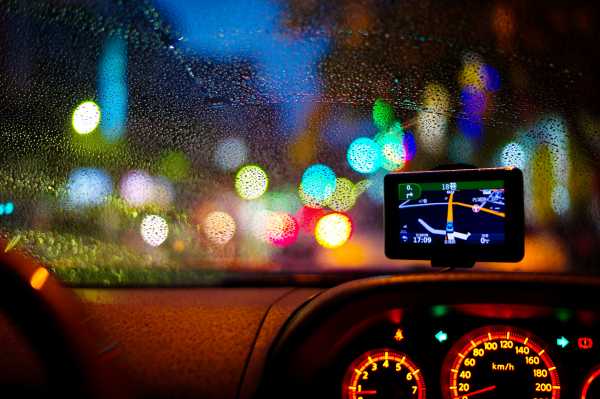
The hippocampus is a seahorse-shaped structure that resides deep in your brain and functions like an internal GPS. It helps us figure out where we are, if we’ve been there before, and where we should go next. Before the age of GPS, before drawn maps, the hippocampus had evolved (among its many purposes) to help us navigate the world. Now, it’s easy to wonder, are we undermining it?
In June, the Washington Post published a viral piece titled “Ditch the GPS. It’s ruining your brain.” The story quickly clarified “what isn’t known is the effect of GPS use on hippocampal function when employed daily over long periods of time.” (Which is to say: We don’t know, for sure, if it’s ruining your brain.)
But there’s some indirect evidence to hypothesize it could.
It’s generally true that when we don’t use a particular skill, the neural connections that underlie it atrophy. And scientists have found decreased hippocampal activity when we’re led to a destination compared to when we’re charting our own course.
And there’s work finding that when people really effortfully engage their hippocampi, they may benefit. A famous series of studies that found London taxi drivers, who have to memorize the city’s tangled mess of streets for their job, have larger-than-average hippocampi, the size of which seems to correlate with their years of experience. Presumably, their hippocampi balloon because they’re busy using them.
It’s possible the opposite could happen: that the less we engage the hippocampi (we all have two), they’ll shrink, and that degeneration could contribute to cognitive decline and Alzheimer’s disease as we age.
To think through how GPS might reshape our brain and mess with our internal sense of direction, I called up Kate Jeffery, a neuroscientist at University College London who studies how brains navigate. She points out that there’s still a ton researchers don’t know about how the brain navigates the world, let alone how technology will interfere. And, tantalizingly, she wonders if certain forms of technology might even enhance our brains’ power to think.
The case that GPS isn’t ruining your brain
Brian Resnick
I often see headlines about how technology is ruining our brain’s ability to think for itself. What do you think about this when it comes to GPS use?
Kate Jeffery
Whenever a new technology comes along, everybody always predicts the end of humanity.
But my feeling about this — which is not informed by a huge amount of data, admittedly — is the human brain seems to like to be busy. It’s pretty exploratory. You give people new technology, and yeah, it makes something easier but it opens up other games.
People now may not spend as much time navigating the real world, but they spend a lot more time navigating the online world or in the virtual world. My sense is that their hippocampi are probably still pretty busy [doing that].
I’d be pretty surprised if we started seeing hippocampal atrophy as a result of GPS, to be honest.
Brian Resnick
And is there a simple way to think of what the hippocampus is doing overall when it comes to navigation?
Kate Jeffery
The idea is that when you store memories, you actually kind of store different bits of the memory in different parts of your cortex. So the spatial part of the memory might be in the hippocampus, but the part that remembers who was there might be in some other part.
So the hippocampus keeps track of where all of that stuff is. It’s kind of like the card index from the old days when you needed to get a book out of the library. The hippocampus might be a bit like that.
Brian Resnick
Let’s say I need to go somewhere; I’m going to go on my bike to a shop downtown. What is my brain doing for me to get there?
Kate Jeffery
I don’t think we fully know yet. The big question we still haven’t really answered, lots of people have opinions on this, but we don’t really know where the goal is stored. So when you think, “I need to go to the nearest bakery,” or something like that, you don’t have to search through all the bakeries you’ve ever encountered in your entire life. Subjectively, it feels like you start from where you are now and produce a widening circle. So you hit the first bakery and you go, ah, that one.
And we really have no idea how that happens, how does your brain search, but it probably does involve the hippocampus and it probably also involves the prefrontal cortex, which is the part of the brain that does a lot of organizing and kind of integrating across different domains and stuff like that.
That’s probably the big next thing that has to happen in the field: to identify how you figure out your way to get to the goal.
Brian Resnick
Do you think technology replaces any part of what the brain does during navigation?
Kate Jeffery
The GPS has probably replaced a small part of what the hippocampus might have ordinarily done.
So, for example, in the thinking of the bakery thing, whereas before you might’ve sat there and thought hard about all the places that you know nearby, you might reach for your phone and look up bakeries nearby or something like that.
But all the other things with getting yourself to the door and then downstairs and all that kind of stuff, just finding your way around, that’s still using the hippocampus in just the same way as always.
I think to the extent that GPS is replacing hippocampal function, it’s likely to be a really minuscule amount. And so, as I mentioned before, I think it’s really unlikely that we’re going to see people with atrophied hippocampus as a result of the new technology.
It may be true that GPS means we are slightly less likely to consult a mental map to make a journey. But I think that’s a relatively small part of what we do in a day, and so I seriously doubt that it’s going to have any effects on our hippocampal structure or the volume or any of those things.
Brian Resnick
I think it’s kind of amazing that something simple, like biking downtown to a shop, arises out of such unknown complexity in the brain. Is there something fascinating to dwell on there?
Kate Jeffery
Yeah, I think there is. I mean, that’s what drew me into the field, really. Because if you look at a paper map, it’s kind of obvious in what way that’s a map. There’s a one-to-one correspondence between places on the map and the corresponding place in the real world.
The brain, on the other hand, the kind of map it makes is just not like that at all. There’s no sense in which there’s a one-to-one mapping between a place in the brain and a place in the world. And yet it ultimately performs the same function.
It will tell you that if you face north, then the west is to your left and the east is to your right. It’s much more abstract than the type of map that we’re used to thinking about.
How navigating in virtual reality could enhance our minds — and help us think in extra dimensions
Brian Resnick
Is there any way technology might be enhancing our cognitive abilities?
Kate Jeffery
So one thing I’ve been thinking about recently is what would happen if we made virtual reality four-dimensional instead of three-dimensional? Would that open up this whole door in our brain to this whole new ability to comprehend four-dimensional space?
Brian Resnick
What?
Kate Jeffery
I mean, the three dimensions that we’re used to have certain properties. You can move in one of the dimensions independently of another. For example, you can move forward and backward and that doesn’t change where you are in your left-right space.
So there’s three orthogonal dimensions. Orthogonal means you can move in one without affecting where you are in the other.
So four-dimensional space is just like that, but there’s one more dimension. There’s this extra dimension. It’s kind of an imaginary dimension. And you can imagine moving along this dimension without changing where you are in the X, Y, and Z of ordinary three-dimensional space. You could sort of think of it as a hot and cold dimension or a red and green dimension or something like that. And it takes you along a different kind of path. It’s very hard to imagine, but mathematically, you can describe it quite well.
Brian Resnick
And you can present this type of four-dimensional space to people in VR?
Kate Jeffery
In theory, you could. I don’t know if anyone has tried it, but in theory, you could. So I’ve been thinking about how you might actually design a VR space that was four-dimensional.
Brian Resnick
I’m still trying to get this. But what would that four-dimensional space look like when you’re in VR?
Kate Jeffery
With a four-dimensional virtual reality, you might have something like you can move left-right, up and down with a joystick, and then you’ve got some other, let’s say you have another joystick with your other hand that can move you through this fourth dimension. And you use them both together, so you can move up-down, left-right, forward-back, and hot-cold, or whatever the other dimension is that we’re going to call them.
And the same geometric rules apply, so you can move in combinations. So just like you can move diagonally [in three dimensions], which is like a combination of forward as well as sideways. You could also move “diagonally” [in four dimensions,] where one of those dimensions was in a hot-cold dimension and that takes you to this space that’s got a little bit of three-dimensional reality and a little bit of this other dimension.
It’s really hard to describe. And we just don’t know what the brain’s map would do with that.
Brian Resnick
Would that experience then activate a type of four-dimensional thinking in the brain?
Kate Jeffery
Yeah. Or not.
So, yeah, I don’t know. But it might be that as adults, we never have this capacity, but possibly if children were exposed to four-dimensional virtual reality, maybe they could become as competent in thinking four-dimensionally as we are in thinking three-dimensionally, I don’t know!
Or there may be limitations in the neural circuitry that just mean that we never could. So I don’t know the answer, but I think one of the most interesting questions to come out of the whole technology question is, could you do that?
Brian Resnick
What would be the benefit of thinking fourth-dimensionally?
Kate Jeffery
I think it would be potentially useful. So, for example, think about the history of the world. We tend to think of history in terms of slices: what was happening in the 17th century, what was happening in the 18th century.
If you had a four-dimensional representation of history, you could visit any place on earth at any time in history. Let’s say you gave a school kid who was trying to learn history a four-dimensional virtual reality depiction of history, and then they could wander around this four-dimensional space and sample any continent at any time, and maybe get a much better understanding of how human history evolved. And not just history, but anything.
If you had another dimension to play with, it might just be possible.
Sourse: vox.com






